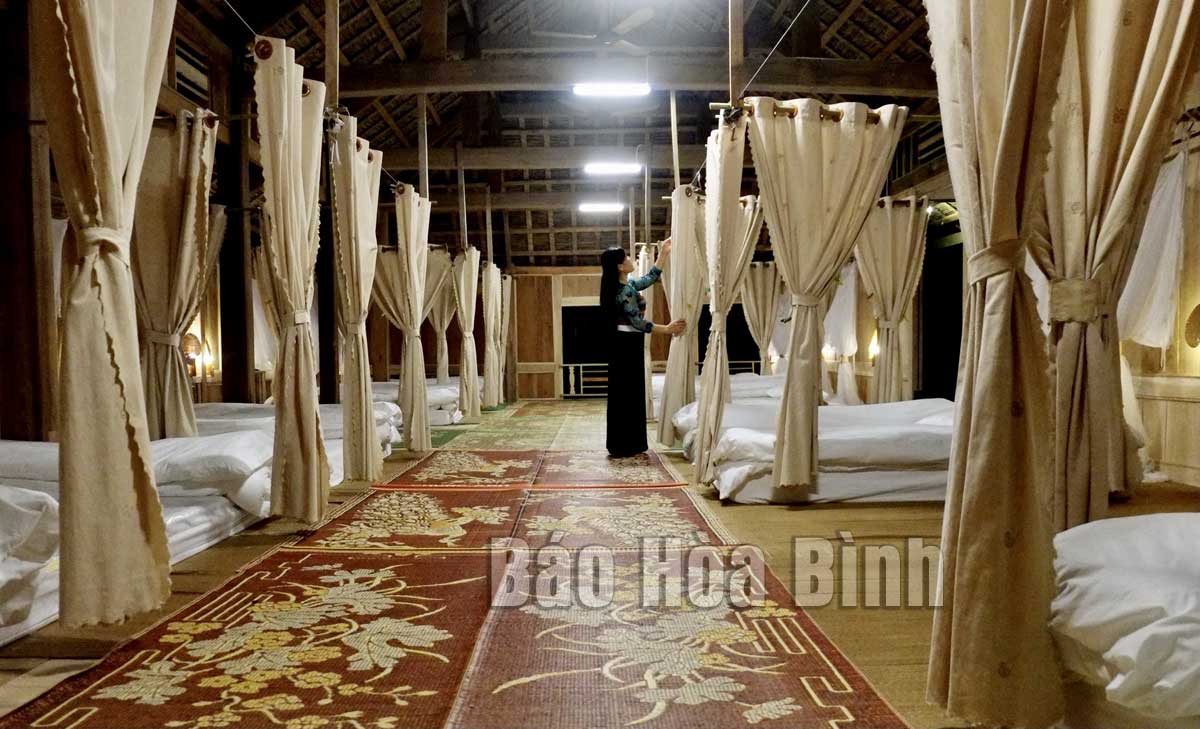



Minh Tho Homestay in Hich 2 hamlet, Mai Hich commune, in Mai Chau district prepares to welcome guests.
The Mai Hich Community Cultural Village in Hich 2 hamlet is a community tourism destination. "International tourists especially love this destination,” said Vi Van Huong, a local tour guide. "Before the COVID-19 outbreak, Hich 2 hamlet welcomed about 20,000 visitors a year, earning over 9 billion VND.”
"Visitors can discover the wonderful local nature, with primeval forests and palm hills,” he added. "Local cuisine made by the skilled hands of Thai women is also an interesting experience for tourists.”
By taking advantage of the landscape and promoting the local cultural identity, destinations can attract tourists all year round.
Seventy percent of tourists are foreigners, with many groups staying for a number of days.
To avoid boredom, accommodation providers have linked their homestays with other destinations, such as community tourism activities in Buoc village, Xam Khoe commune, Lac village, and Chieng Chau commune.
With 7 hamlets, 944 households, and over 4,000 people, the Thai ethnic minority group makes up the majority in Mai Hich commune.
The Commune Party Committee and authorities are creating the necessary conditions for households to participate in tourism development, while encouraging them to preserve and promote their cultural identity.
Ten years ago, the Cohed Community Project conducted activities to support local people to improve their capacity, sparking the idea of developing a community-based tourism model in the commune.
"Accounting for 41.7 percent, the trade and tourism sectors make a great contribution to local revenue and actively support clean agricultural consumption in the villages,” said Vi Van Hue, Vice Chairman of the Commune People’s Council. "Since the beginning of March, through connections with tour operators, local community attractions have welcomed the first foreign groups, with more than 20 people.”
Tourism businesses and households are recovering strongly while ensuring pandemic prevention and control measures are followed, in parallel with improving service quality to attract visitors, thus promoting the local cultural identity./.